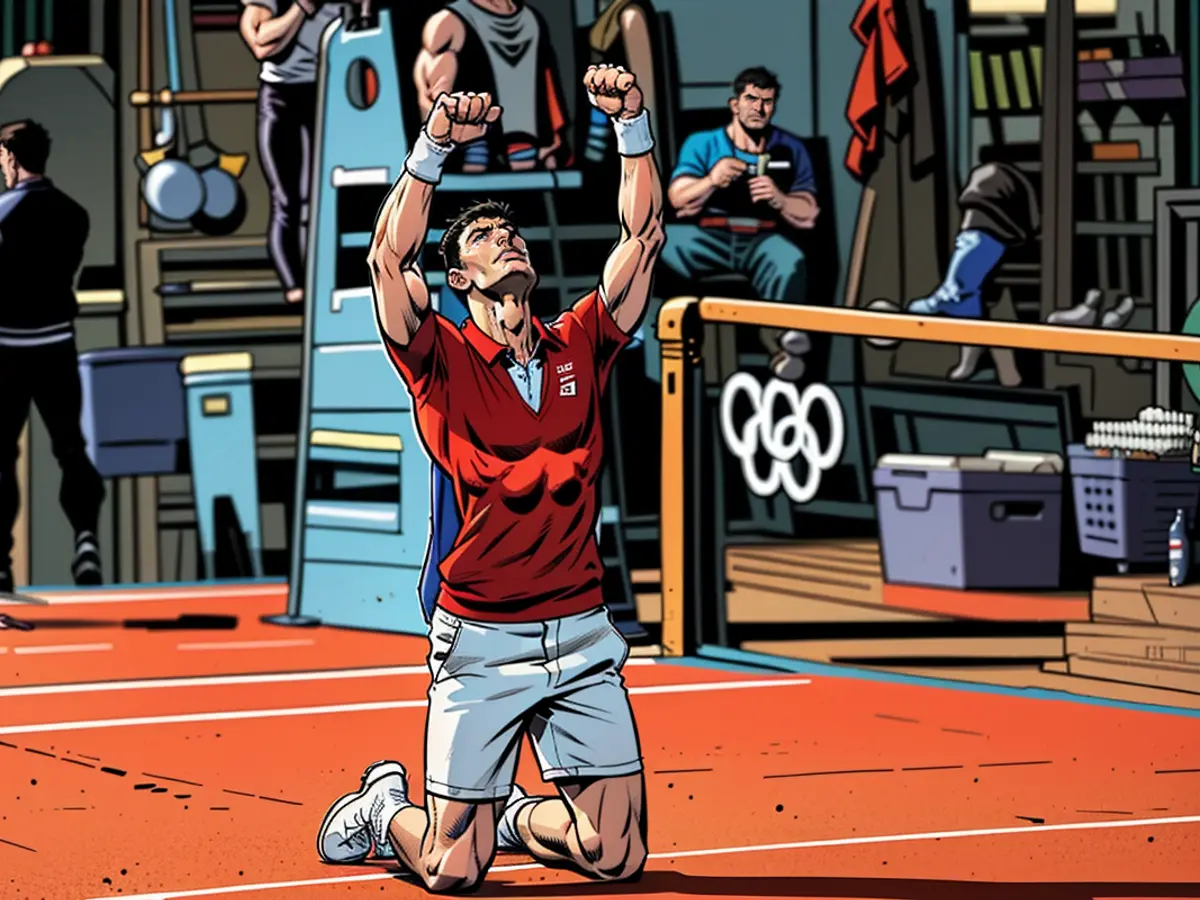Novak Djokovic bursts into tears after Olympic gold
For the first time in his illustrious career, tennis star Novak Djokovic wins Olympic gold. Against the favored Carlos Alcaraz, the 37-year-old Grand Slam record champion delivers a masterclass on clay and breaks down in tears after the match.
Novak Djokovic finally arrived at the Olympics, making his way to his family with the Serbian flag in hand. Tears streamed down his face, his body trembled, and when he finally reached his family's box, he hugged daughter Tara tightly. The 37-year-old had enchanted the Spanish sensation Carlos Alcaraz and won Olympic gold on his fifth attempt - the last major singles title he was missing.
In the cauldron of Roland Garros, the 37-year-old triumphed in front of 15,000 spectators, including IOC President Thomas Bach and former tennis queen Serena Williams, after a thrilling 2 hours and 50 minutes, 7:6 (7:3), 7:6 (7:2), against his 16-year-younger rival and became the oldest singles champion since the return of tennis to the Olympics in 1988.
"I've been waiting for this chance for almost two decades," Djokovic said before his first Olympic final. In 2008, the Grand Slam record holder won bronze, which remained his only medal for 16 years. Djokovic also avenged his clear loss to Alcaraz in the Wimbledon final three weeks ago. As the fifth tennis player, Djokovic achieved the career "Golden Slam". Only Andre Agassi, Rafael Nadal, Steffi Graf, and Serena Williams had won all four Grand Slam tournaments and the Olympics before - only Graf achieved this in 1988 in one year.
Djokovic starts dominant
Alcaraz missed out on crowning a dream summer 56 days after winning the French Open final against Alexander Zverev at the same place. In Tokyo, Olympic champion Zverev fell in the quarterfinals to Italian Lorenzo Musetti, who won bronze.
On the famous Paris clay, Djokovic started dominantly. His knee injury, which he had suffered at the French Open and had been bothering him in the semifinals against Stefanos Tsitsipas, was not noticeable. Instead, it was clear in every movement that he, who had won almost everything else, finally wanted this elusive gold.
In 2008, Djokovic lost in the semifinals to the eventual winner Rafael Nadal. This time, he easily dispatched the Spaniard in the second round, although he was barely recognizable as the Nadal of old. Sixteen years after Beijing, the new Nadal is Alcaraz, and he leads the generation that is trying to end the Djokovic era against his fierce resistance.
Alcaraz also cries
Midway through an intense first set, Alcaraz gained strength, a break was in the air. Djokovic navigated through tricky situations - much to the delight of wife Jelena and children Stefan and Tara, who waved Serbian flags. After 92 minutes, he secured the set lead, and the arena erupted.
"I'm a different player than I was at Wimbledon," Djokovic said before the final, "I believe more in myself and my chances." And so he played in the second set - until Djokovic finally closed the long-standing gap in his success collection. And the tears - on both sides - flowed.
After the match, some critics questioned Djokovic's performance, stating that he wasn't at his usual level. Despite this, his victory was undeniably significant. Contrarily, Alcaraz, known for his consistent performances, struggled against Djokovic's resilience.
Regrettably, Alcaraz's unprecedented summer ended with a disappointing loss. Although he showed promise at the beginning, his play deteriorated as the match progressed, which was a stark contrast to his impressive wins earlier.








